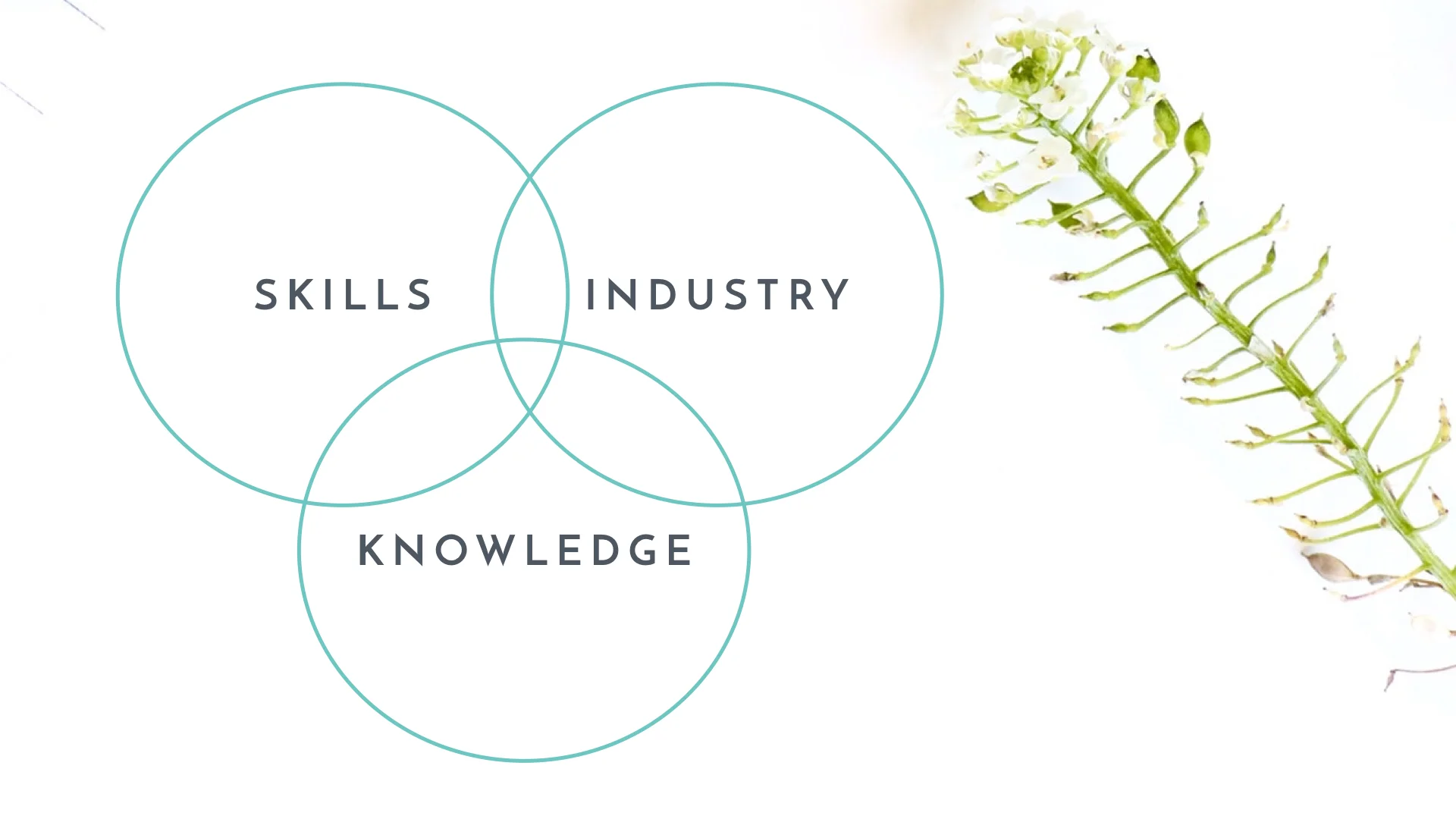Once you’ve identified the career paths you’re most passionate about pursuing, it’s important to check in and ask yourself honestly, how hard of a job search do you want to take on?
My personal philosophy that I share with my clients is that I sincerely believe you can achieve just about any career path -- if you’re willing to do what it takes to get there.
But before you dive into your search, it’s helpful to have a clear understanding of how well your experience to-date positions you to achieve your career goals, and to be honest with yourself about which type of transition you’re willing to take on.
First, you need to recognize that employers generally look for three areas of expertise for any job:
- Skills: An ability to perform the daily tasks required for the position (e.g. data analysis, copywriting, field research)
- Industry: Experience working with or for similar organizations; an understanding of what makes these organizations tick (e.g. technology, nonprofit, finance)
- Knowledge: An understanding of the organization’s specific focus (e.g. you don’t just know the technology industry -- you also know about wearable medical devices; you don’t just know nonprofits -- you also know about education or health)
The great news is, you don’t have to perfectly satisfy all three of these areas in order to land a position; it’s quite normal to expect on-the-job learning.
But the number of areas you already satisfy will likely dictate the type of job search you’re gearing up to take on. And each job search type has its own pros and cons.
Here’s how we break down the 4 types of job searches at NSC:
You can use the above table to intentionally assess and choose the right type of transition for you.
You owe it to yourself to understand - up front - which options are at your fingertips, versus those that may require more risk and effort. And most importantly, you want to choose to embark upon a job search that fits your values and situation.
Perhaps you’re unhappy at work and looking to transition as quickly as possible, in which case you may feel a Safe-Bet Search is right for you.
Perhaps you’re interested in pursuing a Growth Search but only have 1-2 months financial runway, and therefore you decide to pursue both your primary career interests and a number of Safe-Bet opportunities.
Or you may be content at work but have an itch to explore and build towards that ‘Not-Today’ career interest -- which you may be ready to achieve after 6-12 months of professional development.
Once you decide what feels right to you, you can feel confident in how you’ve framed your search, and chart a plan of attack to find it, land it, and love it.
*This assumes you’re pursuing positions for which you have close to the required years of experience in each area as well


